EU deal gives UK special status, says Cameron
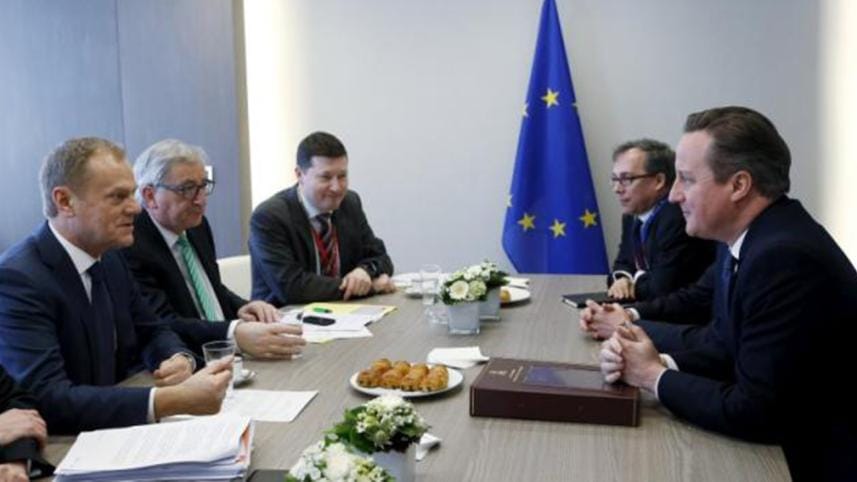
David Cameron says a deal struck with EU leaders will give the UK "special status" and he will campaign with his "heart and soul" to stay in the union.
The PM said the agreement, reached late on Friday after two days of talks in Brussels, would include a seven-year "emergency brake" on welfare payments.
He added the deal included changes to EU treaties and would be presented to his cabinet on Saturday at 10:00 GMT.
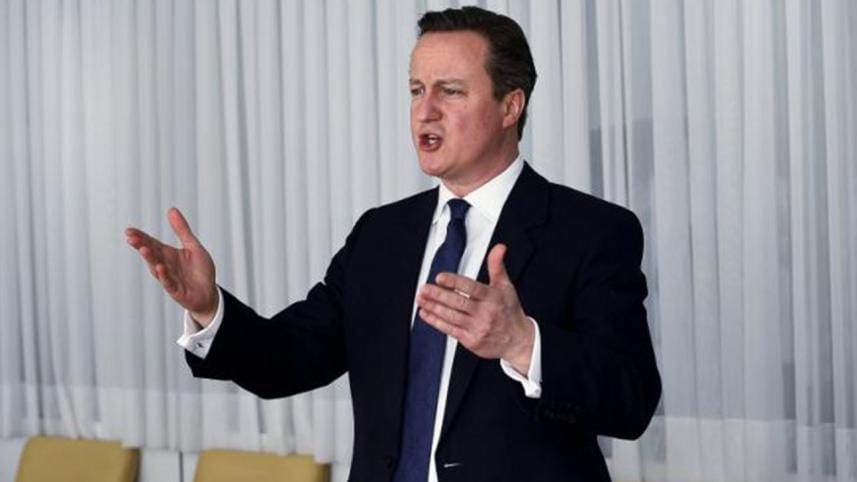
EU exit campaigners said the "hollow" deal offered only "very minor changes".
The agreement on renegotiating the UK's EU membership was announced by European Council president Donald Tusk, who tweeted: "Deal. Unanimous support for new settlement for #UKinEU."
It paves the way for the UK to hold an in/out referendum on EU membership, which has been promised by the end of 2017 but is expected in June this year.
THE NEW DEAL INCLUDES:
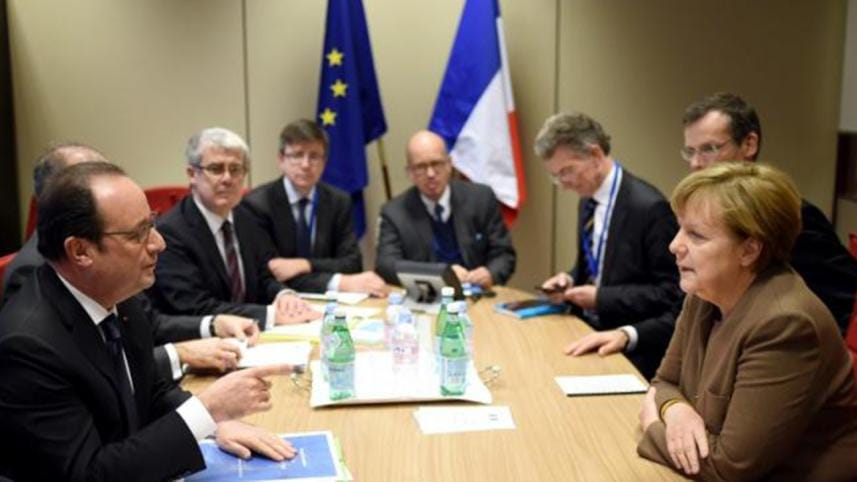
Cuts in child benefit for the children of EU migrants living overseas - applicable immediately for new arrivals and from 2020 for the 34,000 existing claimants.
The amending of EU treaties to state explicitly that references to the requirement to seek ever-closer union "do not apply to the United Kingdom".
An "emergency brake" on migrant workers' in-work benefits that will apply for seven years - less than the 13 years the PM proposed but longer than other countries had asked for.
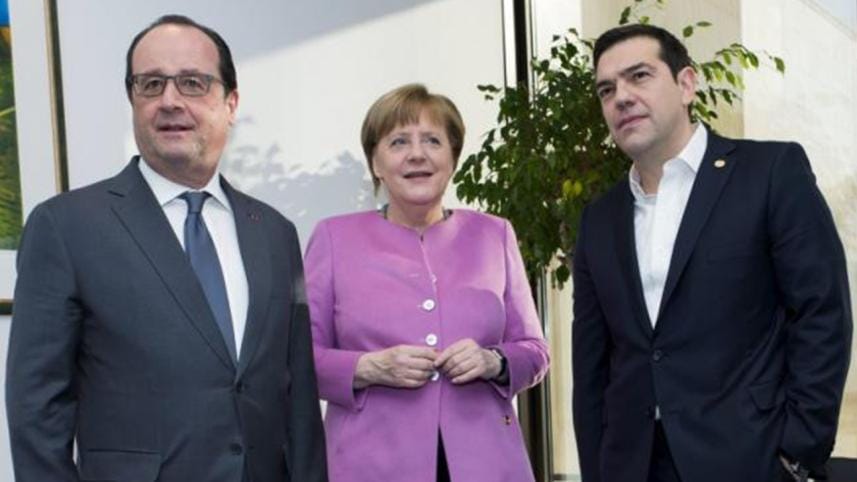
The ability for the UK to enact emergency safeguards to protect the City of London.
German Chancellor Angela Merkel predicted the package of reforms would "elicit support in the UK for the country to remain in the EU".
‘IN BRITONS’ HANDS’
Tusk said it "strengthens Britain's special status", while EU Commission president Jean-Claude Juncker described it as "fair".
Tusk added: "We didn't walk away from the negotiating table. We were willing to sacrifice part of our interests for the common good, to show our unity.
"I deeply believe the UK needs Europe and Europe needs the UK. But the final decision is in the hands of the British people."
Once Cameron has briefed his ministers at Saturday's cabinet meeting, they will be free to campaign for either side in the referendum.
Cameron said he would shortly announce the date of the vote and said he was "disappointed" but not surprised that one of his key allies, Justice Secretary Michael Gove, was to campaign for the UK to leave the EU.
Cameron said he had achieved the reforms he wanted, claiming they would put the UK "in the driving seat" of one of the world's biggest markets and create a "more flexible" EU.
"We have permanently protected the pound and our right to keep it," he added, saying that, for the first time, the EU "has explicitly acknowledged it has more than one currency".
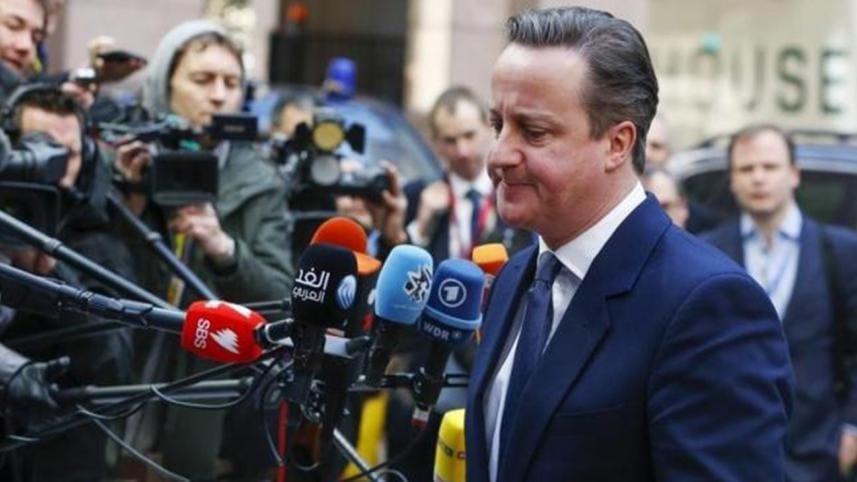
"The British people must now decide whether to stay in this reformed European Union or to leave," he continued.
"This will be a once-in-a-generation moment to shape the destiny of our country."
At the same time as the EU reforms, the PM said further measures to strengthen the UK's sovereignty would be announced.
The deal reached between all 28 EU member states comes after several leaders objected to Cameron's planned reforms.
The original aim had been to conclude the deal at an "English breakfast" meeting on Friday, which became an "English brunch", then an "English lunch" and eventually an "English dinner", at which point the agreement was announced.
Eurosceptics have dismissed the reforms, saying they will not allow the UK to block unwanted EU laws or reduce migration.
Matthew Elliott, chief executive of the Vote Leave campaign, said Cameron "will now declare victory but it is an entirely hollow one".
He disputed the PM's claim that the deal was legally binding, saying it "can be ripped up by EU politicians and unelected EU judges".
LeaveEU co-chairman Richard Tice tweeted that the deal was a "desperate fudge".
As the EU summit was being concluded, another EU exit campaign, Grassroots Out, held a rally in Westminster.
Conservative MP David Davis said it was time for Britain "to take control of its own destiny", while UKIP leader Nigel Farage said the cross-party campaign was "absolutely united in fighting to get back our democracy".
Farage unveiled former Respect MP George Galloway as a "special guest" at the rally, describing him as a "towering figure on the left of British politics".



 For all latest news, follow The Daily Star's Google News channel.
For all latest news, follow The Daily Star's Google News channel.
Comments